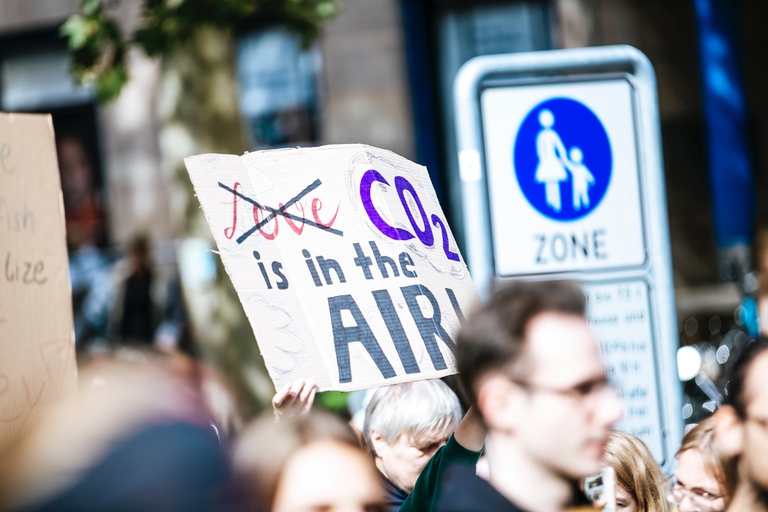https://www.lifegate.it/italia-sace-fossili
- |
- Through the public subsidiary Sace, Italy continues to finance fossil fuel extraction projects abroad, despite the climate commitments adopted during the COP26 in Glasgow.
- Combined, these projects will produce more than 3 times the annual amount of CO2 emissions of Italy itself.
- Globally, Italy is the sixth largest financier of fossil fuels, more than Russia and Saudi Arabia.
Although Italy has committed to stop extraction projects of the fossil fuels by the end of 2022, a new analysis of Oil Change International shows how the Italian government continues to actively finance huge international projects related to gas And petrolium, in particular through the state subsidiary Sace.
Taken together, these projects will produce 3.5 times the annual amount of CO2 emissions of Italy:in this way, the public export credit agency Sace, controlled by the Ministry of Economy, can be considered one of the largest financiers of fossil fuels in the world.
Specifically, in the period 2019-2021, Italy, through Sace, provided 2.8 billion dollars per year to the extraction of non-renewable sources, thus becoming the sixth financier in the world of fossil fuels, ahead of Russia and Saudi Arabia and behind only Japan, Canada, South Korea, China and the United States.

Such projects will add 1.2 gigatons of CO2
At the end of COP26 in Glasgow, 39 countries - including Italy - plus various financial institutions signed the Glasgow statement, which commits the signatories to “end direct public support towards new international fossil fuel energy projects by the end of 2022, subject to limited and clearly defined circumstances consistent with the 1.5 degree warming limit and the goals of the Paris Agreement."
A growing number of nations – including the United Kingdom, France, Denmark, Sweden and Finland – they adopted new policies to honor this commitment, stopping public funding for fossil fuels in time for the end of the year.Italy - which has not yet ratified the Glasgow agreement - instead continues to finance the extraction of gas in Turkey, of liquefied gas (LNG) in the Rovuma basin in Mozambique (where Eni is also involved) and in offshore gas processing projects in Brazil.
If Sace continues to support these projects, it will add 1.2 gigatons of CO2 to the atmosphere, three and a half times the amount of CO2 produced by Italy in a year.To be honest it's about an underestimated figure, as Sace is not required to publish information on the projects it intends to support.For example, the emissions that will be produced by the expansion of two large Asian refineries, which will also benefit from Sace's economic support, are not included:let's talk about the refinery Balikpapan in Indonesia and the LNG import project of Petrovietnam.It is not possible to calculate the amount of emissions due to lack of information, therefore the emissions produced by projects supported with Italian public money could prove to be much greater.
Italy acts in stark contrast to climate objectives
Sace has a long and rich history of financing towards projects that are devastating for the environment:in 2020, the Italian agency financed Total in's LNG extraction project Mozambique, where gas infrastructure has exacerbated conflict in the Cabo Delgado region, displacing half a million people and killing thousands of Mozambicans.
Sace was also among the largest supporters of Russian oil and gas extraction in recent years, helping to enrich the country as it prepared to invade Ukraine.In early November, it was revealed that Italy had also attempted to water down the level of ambition of a European initiative promoted during COP26, the Export finance for future, and which Italy had joined to end financial support for the export of fossil fuels.
Considering the support for these projects, therefore, the Italian government is acting in stark contrast with climate objectives:the scenarios foreseen by Intergovernmental Panel on Climate Change (IPCC) and fromInternational Energy Agency (IEA) prove that it is necessary block any new mining project of fossil fuels if we want to maintain a 50 percent chance of limiting global warming to 1.5 degrees.Net of the speeches, therefore, Italy is called to give a concrete signal in terms of climate objectives.
